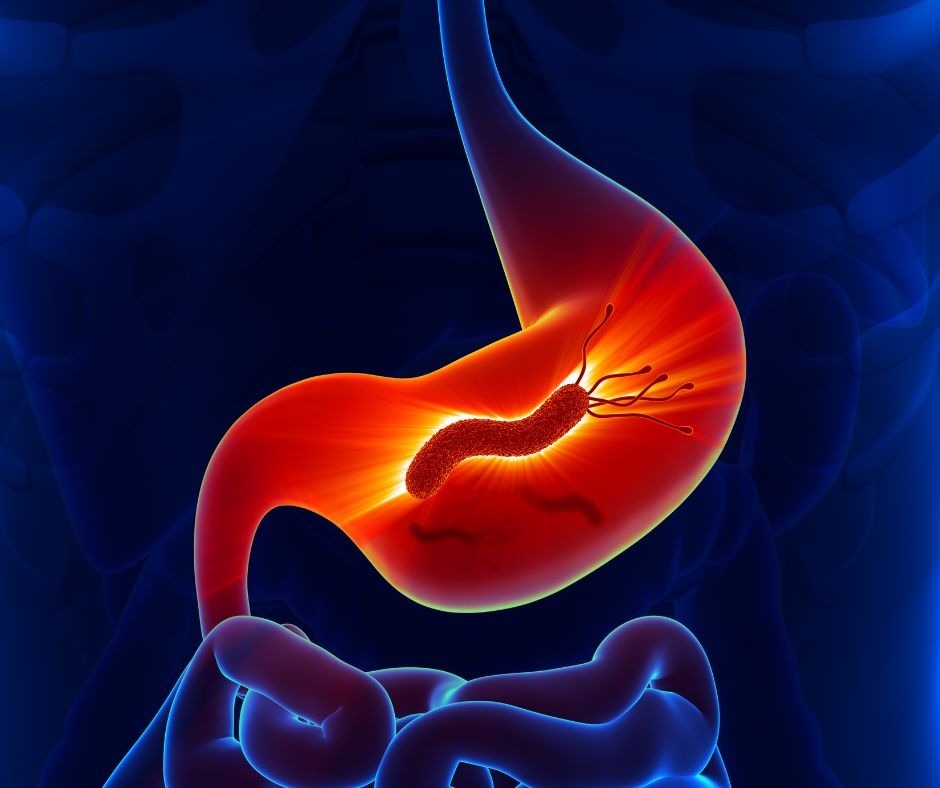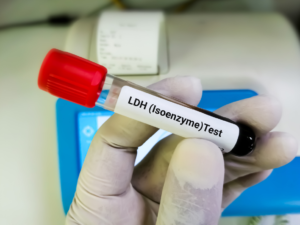What are the symptoms of Helicobacter pylori?
Helicobacter pylori is a bacterium that infects the stomach, and can produce gastric ulcers, which are formed by sores in the stomach lining, or duodenal ulcers, whose sores are located at the beginning of the small intestine. In turn, the infection can lead to gastritis and stomach cancer.
Helicobacter pylori infection usually occurs during childhood, but many people with the infection are not aware of it unless they have symptoms such as stomach pain and abdominal discomfort, which are indicative of peptic ulcers or gastritis. In this post, we will discuss everything related to Helicobacter pylori infections: the causes, symptoms, tests to detect the infection, and its treatment.
How do you know if you have Helicobacter pylori bacteria?
A large number of people have Helicobacter pylori bacteria. In fact, it is thought to be present in more than 50% of people worldwide and is usually present in people living in developing countries.
The bacterium is spread through food contaminated with human fecal matter, or dirty water, and through contact with the saliva, vomit and feces of a person with the infection. For this reason, direct exposure to infected family members is one of the most common causes of acquiring the infection.
As previously mentioned, the infection usually has no symptoms unless the inner lining of the stomach ruptures and gastritis or peptic ulcer develops. Peptic ulcer in particular produces very intense pain and is generated by the decreased ability of the stomach to produce mucus due to the appearance of the bacteria. Thus, as there is less mucus, the stomach can be damaged by the digestive acid. In any case, it should be noted that not all people suffering from the infection develop an ulcer, in fact, it is a small percentage.
Symptoms of Helicobacter pylori infection
The following are the most common symptoms that indicate the presence of Helicobacter pylori bacteria:
- Weight loss
- Abdominal pain
- Gastrointestinal pain
- Feeling of fullness and abdominal bloating
- Nausea and vomiting
- Belching
In addition, there may be painful reflexes that the stomach may provoke in different parts of the musculature, in joints and, especially, in different areas of the back.
If some or all of these symptoms are present on a sustained basis, it is advisable to test the patient for the bacteria. In cases where abdominal pain is severe and accompanied by dark, bloody stools, urgent medical attention is recommended.
Tests for Helicobacter pylori
First of all, it should be noted that there are different tests to detect whether or not a person has Helicobacter pylori bacteria. A venous blood test can be done to detect antibodies against the bacteria, a breath test and a stool sample to detect the antigen of the bacteria. In addition, in certain cases, an endoscopy with a biopsy of the stomach mucosa may be performed. For this, a tube with a camera is inserted through the mouth into the stomach and a sample of the stomach tissue is taken. It should be noted that the most common tests are the fecal antigen test and the urea breath test because they are the least invasive.
Regarding the preparations for the studies, they are not required for the blood test, but they are required for the other studies. In the breath test, it is requested not to ingest food or beverages for one hour before the analysis, nor to ingest certain medications in the previous days. In this test, a breath sample is collected in a bag, and after the patient ingests a liquid containing urea, another breath sample is taken. For the endoscopy, it is also requested to abstain from certain medications and it is necessary for the patient to fast the night before. It is very important that you follow the instructions to the letter so that the test results are accurate.
In addition, follow-up tests are often performed to verify whether the bacteria are still in the body after the prescribed treatment to eradicate the infection has been completed.
In addition, follow-up tests are often performed to check whether the bacteria are still present in the body after the prescribed treatment to eradicate the infection has been completed.
Helicobacter pylori treatment
Helicobacter pylori infection is treated with a combination of antibiotics to help eliminate the bacteria. Peptic ulcers, for example, are treated with medications that help reduce pain by reducing the acidity produced by the stomach. Most patients manage to eliminate the bacteria thanks to antibiotic treatment, however, some have resistance to a certain antibiotic, and therefore, may continue to have the bacteria in their organism. In addition, it should be noted that the treatment does not generate immunity, i.e. the person can become infected again.
On the other hand, if a negative result for the bacteria is obtained, but the symptoms remain, it is recommended to perform an endoscopy with a biopsy to rule out any possibility of infection that has not been previously detected. In fact, if a person did not follow the instructions for testing, the results may be false negative. Taking antibiotics or antacids prior to the test may interfere with the breath test and stool sample, but not with the blood test.
Recommendations for prevention of Helicobacter pylori infection
To date, there is no vaccine against Helicobacter pylori, but there are a number of recommendations to help prevent infection. First of all, it is recommended to wash hands before eating and after going to the bathroom. It is also recommended to drink water in good condition and from a safe source, as well as to make sure that the food consumed has not been contaminated.
As we have seen throughout this blog post, testing for Helicobacter pylori infection is key to make a proper diagnosis and to indicate an effective treatment. Contact us if you have any questions and visit our blog to keep up to date with all the latest clinical news. At Ambar Lab we offer more than 3,000 laboratory tests, business management support and the development of new projects. We work so that our wide and growing catalog of tests fits you, because we know that knowledge is the key that facilitates the work of our customers.





